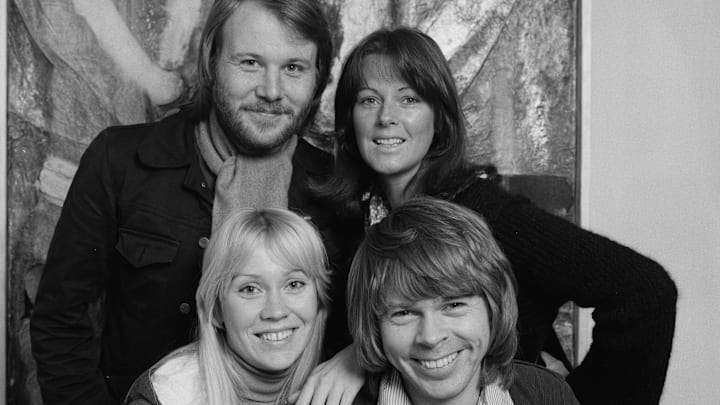“Imagine” by John Lennon (1971)
“Imagine” shares a spiritual, hymn-like quality with “Bridge Over Troubled Waters,” but whereas I don’t really know anyone who dislikes the Simon & Garfunkel song, “Imagine” is a trickier business. The line “And no religion too” has always bothered some listeners, as has Lennon’s overall personality. I mean, this is the same man who wrote, “I’d rather see you dead little girl than to see you with another man” a few years earlier. Then there are those who criticize the pie-in-the-sky simplicity of the song’s basic argument. I’m sorry, but if you’re looking for Diogenes or de Tocqueville in a three-minute pop song, I’d suggest you’re engaged in a fool’s errand. Maybe try some Randy Newman.
“Imagine” was Lennon’s first number-one hit in the UK as a solo artist. It made it to number 3 in the USA. It’s a gentle piano ballad that promotes an admittedly simplified vision of brotherhood and peace. But it presents its message with a delicacy that has seduced listeners for decades. The song has become a staple at major events, most recently during the Opening Ceremonies of the 2024 Paris Olympics, when French singer Juliette Armanet served up one more beautiful rendition, accompanied by the tinkling piano of Sofiane Pamart.
(As a footnote here, let me just say that I love Randy Newman. He produced a number of great songs in the 1970s, including a corresponding piece of political philosophy that goes in a slightly different direction from Lennon, entitled “Political Science.” The problem with Newman and a list like this is that most of his best songs were not even close to being popular hits, and his one major pop hit from the decade – 1977’s “Short People” – really isn’t all that good a song.)
“Rainy Days and Mondays” by the Carpenters (1971)
From 1970 to 1974, Karen Carpenter and her brother Richard recorded three number-one songs and four others that made it to number 2. “Rainy Days and Mondays,” one of those number 2s, is the best of the lot and among the most beautiful soft pop songs of the decade. The formula was simple.
Rogers Nichols wrote the gentle, poignant melody, and Paul Williams contributed lyrics that stayed just to the proper side of saccharine. The songwriting duo had already written the Carpenters' first number-one song, “We’ve Only Just Begun,” and would go on to write another top-20 hit for the brother and sister with “I Won’t Last a Day Without You” a few years later. They understood what Karen Carpenter was capable of.
Fortunately, her brother did as well, so he left the arrangement simple. The backing chorus only adds a brief accent to Karen's lead vocals, and a sweet little sax riff fills in the bridge. Other than that, it is pure Karen, and Karen Carpenter had just about the warmest, purest voice in all of pop music. There is depth and substance beyond the perfect pitch. If you were a teenage boy in the 1970s, you could never admit to liking the Carpenters, but as a significantly older man today, I feel OK admitting that this is about as perfect as soft pop ever got.
